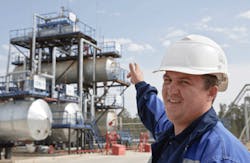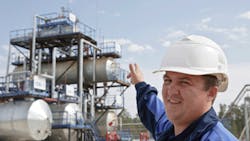Positive results for second Williston Basin frack water treatment runs reported
Sionix Corp. says it has completed the second and final demonstration phase of testing its proprietary water treatment technology in the Williston Basin of North Dakota.
The processing facility in Dickinson, N.D., has successfully treated production and flowback water from drilling and fracking operations in the Bakken Shale. The first round of testing, completed in January 2013, was done with the participation of Clear Water Services, an independent, experienced and innovative water treating company. Laboratory analysis was performed by two independent third-party testing laboratories in North Dakota and California.
Test results showed an average reduction in turbidity of 98%. A total of 41 samples of production and flowback water showed influent turbidities as high as 10,875 nephelometric turbidity units (NTU's) and treated effluent turbidities as low as 3.1 NTU. Total suspended solids were reduced by 80% and test results showed reductions in barium, calcium, iron, magnesium, aluminum and strontium.
John Mandelin of Clear Water reported, "Treatment testing at the Sionix North Dakota Bakken facility showed a significant reduction of turbidity and suspended solids. Chemical treatment also resulted in substantial reduction in aluminum, phosphorus, magnesium, bicarbonate, hydrocarbons and BTEX."
In April 2013, Sionix began a second round of field testing after modifying equipment and its testing protocol based on information and analysis gleaned from earlier test results. The treatment process consisted of initial residence time, pH control and chemical pre-treatment, clarification, filtration and the patented Sionix Dissolved Air Flotation (DAF) system.
The objective of the test was to demonstrate the ability to treat commercial volumes (up to 225 gpm, the equivalent of 324,000 gallons per day) of production and flowback water and generate treated brine that could be recycled for use in fracking. Several variations in treatment protocols were used. Water samples from the various stages of the process have been received in Houston where they are being analyzed by an independent third party laboratory.
Rex Crick, Sionix Chief Operating Officer, said, "We are encouraged that we were able to successfully treat production and flowback waters that were destined for disposal wells. Our process yielded clear, treated brine with a density of more than 9.6 pounds per gallon at a near neutral pH. Our test results should confirm that our clean brine will meet the requirements of drilling operators for fracking and we have retained barrels of our treated water for them to evaluate."



